
Over the past several years, the Immuta team has worked closely with product teams at Snowflake and Databricks to ensure that joint customers are able to leverage the full power of their cloud investments, while ensuring their valuable data assets remain secure. We are excited to introduce our newest suite of features that strengthen these partnerships and elevate data security for Snowflake and Databricks.
In this blog, we’ll explore these latest capabilities and how they are helping Snowflake and Databricks customers innovate with data faster and more efficiently.
Immuta Databricks Unity Catalog Integration with Support for Row- & Column-Level Controls (Private Preview)
With this enhancement, Immuta natively orchestrates security for Databricks, reflected as native Unity Catalog controls, including table-level security, row-level security, and column masking. This is done with no impact to the typical user experience across Databricks clusters and Databricks SQL using the Unity Catalog enforcement standard.
A seamless, non-invasive orchestration of controls across the Databricks Lakehouse Platform makes it easy for data teams to secure and scale access while accelerating and simplifying operations. Immuta is initially rolling out the integration for Databricks instances running on AWS and Azure, and will expand to Google Cloud platform in the near future. Learn more about the Unity Catalog integration here.
Domains for Data Mesh (Private Preview)
As many organizations begin to adopt data mesh, they need to distribute policy ownership to individual business units, domain experts, and data teams across lines of business and cross-functional work groups.
With Immuta domains, teams are able to easily support federated governance. Immuta domains are containers of data sources which allow data to be grouped into user-defined sets. Within those sets, specific users can be assigned a domain-specific privilege to manage policies on ONLY the data sources in those domains. Authorized users will be able to:
- Create new domains
- Administer domains once they are created, including editing the domain name and description, assigning additional domain-scoped privileges to users in the domain, and deleting the domain if it contains no data sources
- Manage policies on all data sources inside of a domain for which a user is authorized
- Add and remove data sources from a domain for which a user is authorized
Localized Sensitive Data Discovery for Databricks
Databricks users now have the option of running sensitive data discovery (SDD) within their own Databricks environment. This means organizations with jurisdictional requirements aren’t burdened with the need to set up private networking or regional Immuta instances that add time and increase costs.
Additionally there is improved performance and reliability because Immuta’s SDD leverages native capabilities such as Databricks query execution. Finally, this enhancement uses a more sophisticated scoring methodology that reduces overtagging where false positives were applied to customer dictionaries. To learn more read this blog.
Data Monitoring and Detection Support for Databricks Clusters (Public Preview)
Customers who use Databricks clusters with Immuta’s plugin-based connector can now get immediate visibility into user and data behavior activity, without needing to wait for migration to Databricks with Unity Catalog.
SDD Custom Identifier Support
With Immuta’s custom sensitive data identification and classification feature now generally available, users have the ability to classify their unique semantic data as sensitive, in the same way as the built-in SDD identifier. This support is provided through custom regex identifiers, allowing for a flexible and tailored approach to sensitive data classification.
Capture Audit Events from Databricks Unity Catalog
Users can access detailed audit logs from Databricks Unity Catalog, including Databricks SQL and Databricks Clusters. The rich audit logs provide detailed information about who accessed what data, why, when, what SQL queries they ran, and which data they accessed.
Tag Side Sheet
Immuta’s tag side sheet feature offers users contextual information about a particular tag application without the need to navigate to other pages. With one-click interaction, the side sheet slides in from the right side of the page, providing the user with metadata related to the selected tag application, including the tag name, complete tag hierarchy, source information, and additional columns or policies to which the tag has been applied. If the user has enabled data sensitivity classification, framework information can also be seen on the tag side sheet.
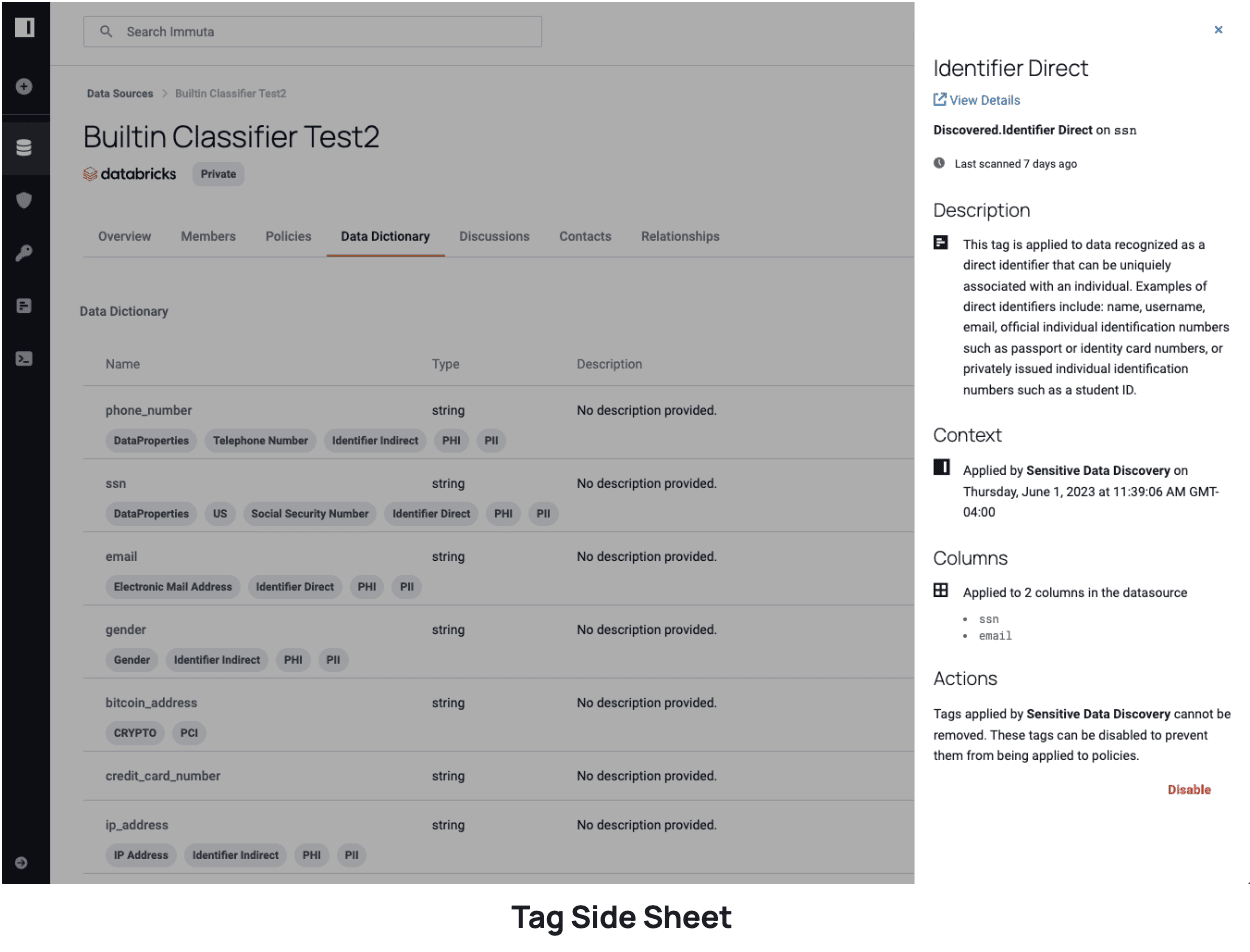
Depending on the type of tag (discovered by Immuta, manually created, or from an external source) there may also be actions a user can take on the tag application, namely disabling, re-enabling, or in some cases removing.
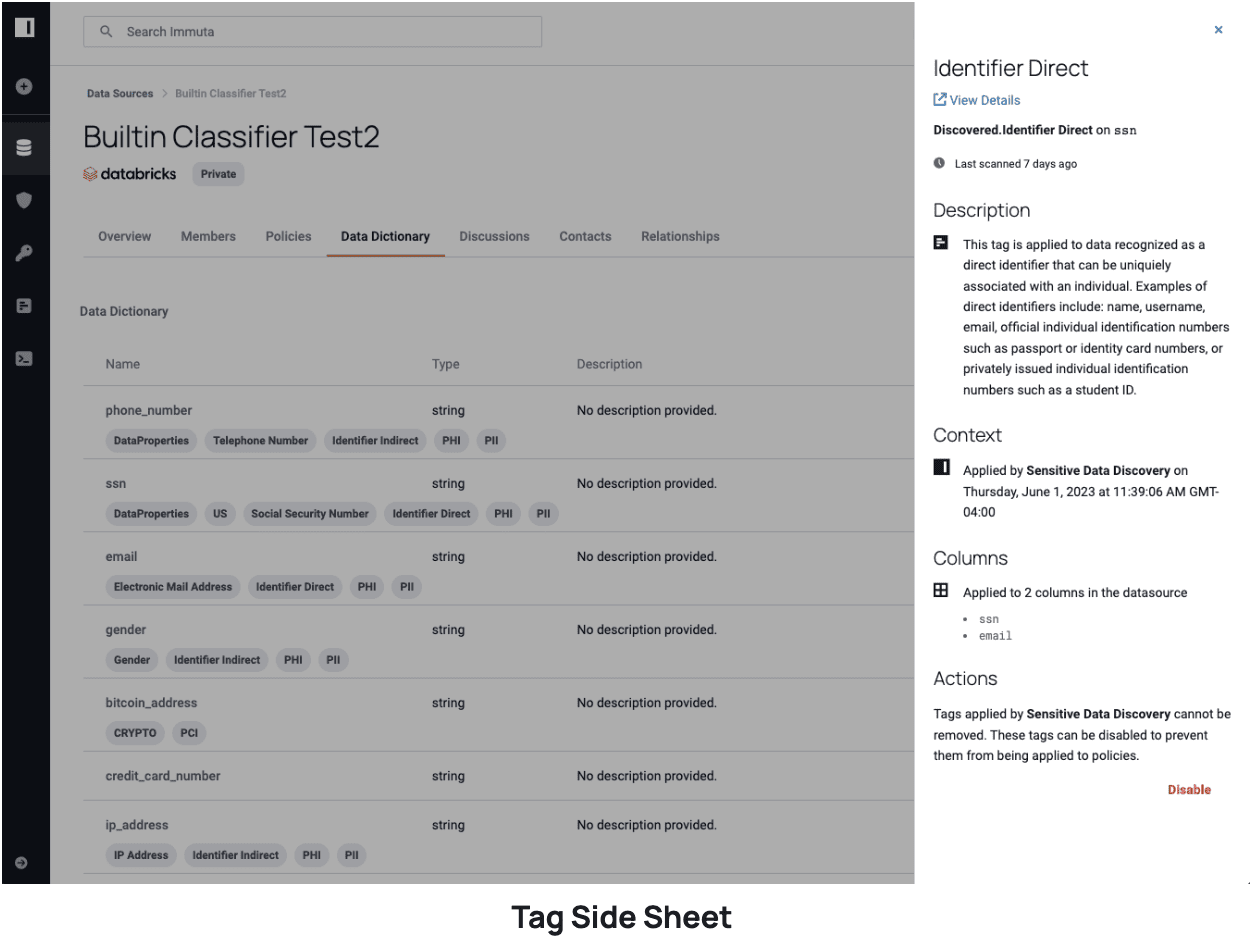
Enhanced Tag Metadata Support
Users now will have rich information about tags including origin, purpose, and timeline of changes. Coupled with intuitive navigation and inspection features, these capabilities help manage critical aspects of data security programs, such as identifying and classifying sensitive data to establish secure data access control and user behavior analytics.
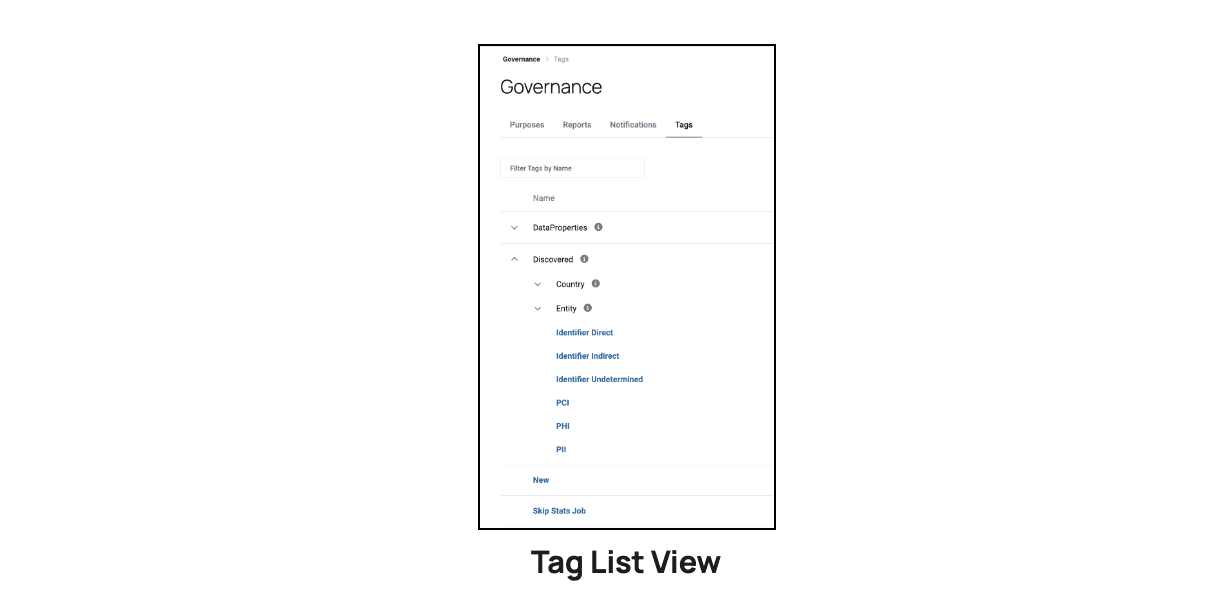
Data Security Posture Dashboard for Snowflake
The Data Security Posture Dashboard provides a concise overview of data security information, facilitating deeper investigation with the data product owner or a security analyst using the existing Immuta Detect pages or Unified Audit Model (UAM) in their cloud SIEM. With enterprises shifting towards cloud data, security personnel must continuously assess data access risks stemming from configuration changes, activity changes, automation, and break-glass exceptions. This dashboard increases awareness of the potential attack and risk vectors on cloud data platforms to inform actions that improve security for valuable data assets.
The Data Security Posture Dashboard summarizes how security posture is trending relative to various potential data security issues and metrics including:
- Over-Provisioned Access
- Unbounded Future Table Access
- Snowflake Security Best Practices
- Potential Intrusion Attempt
- Potential Database Scanning
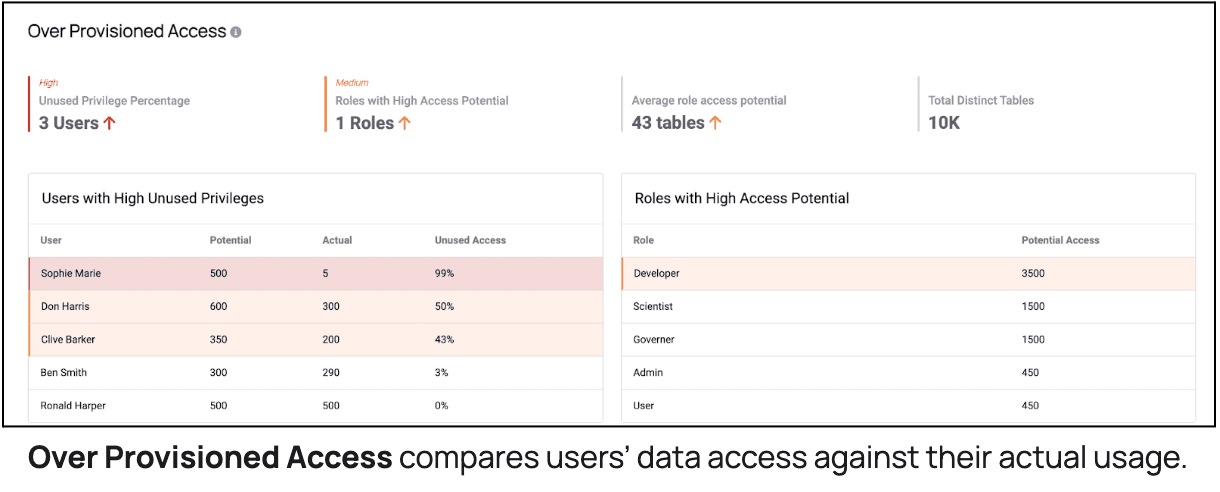


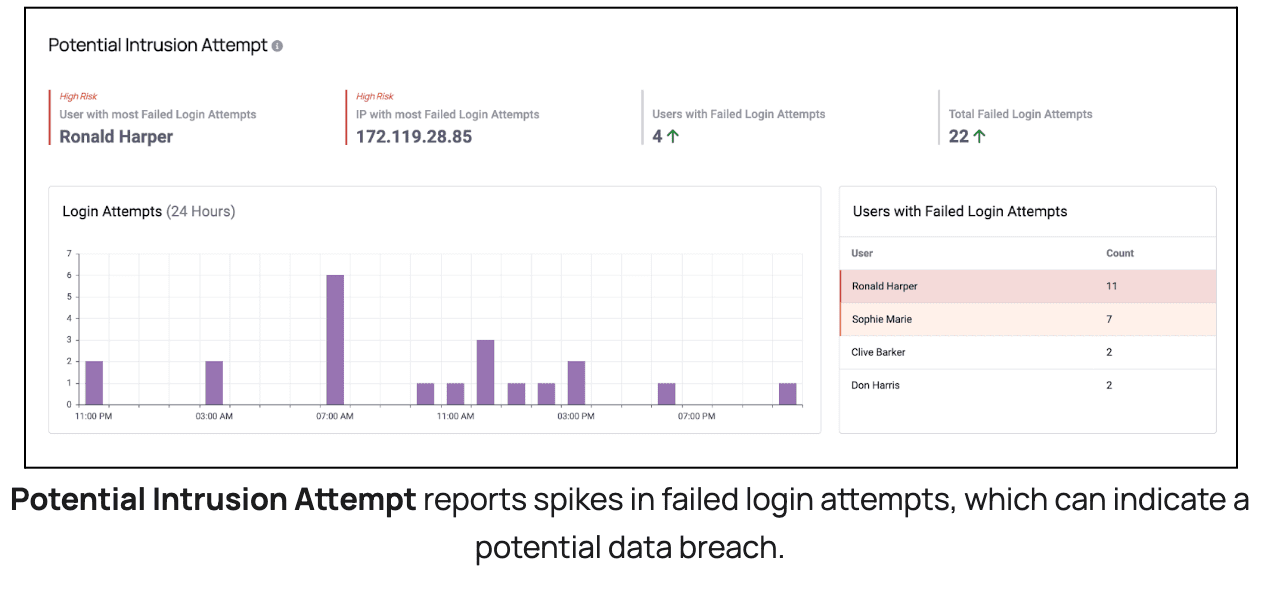
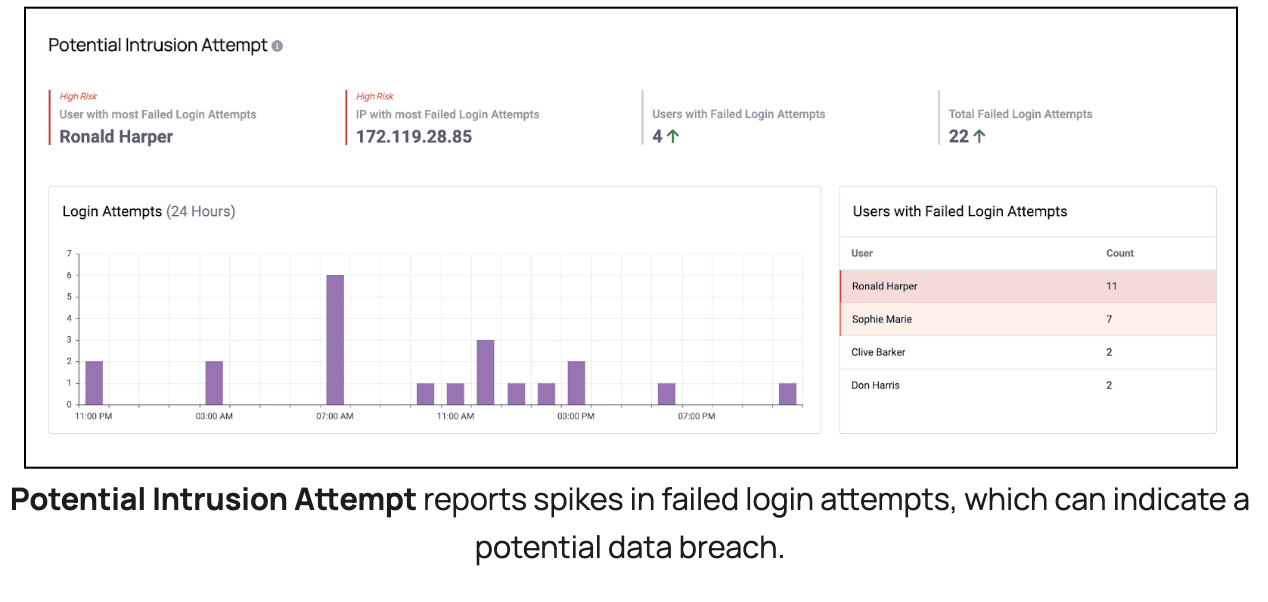
Self-Managed (2023.2)
The following new features are now available to our self-managed customers, both in General Availability (GA) and Private Preview.
- Databricks Metastore magic
- SAML single logout
- Databricks Unity Catalog integration
- Capture audit events from Databricks Unity Catalog
- Enhanced tag details view
- Unique tag display name
- Snowflake schema monitoring for table replacements
- Domains (for design partners) in Private Preview
- Snowflake registration with native Secure in Private Preview
Snowflake Summit 2023
Immuta unveiled new features for the Snowflake Data Cloud during the 2023 Snowflake Summit. Check out this press release for more details about these enhanced capabilities:
- Secure Deployment of New Data Products with Data Mesh
- Enhanced Security for AI Workloads in Snowpark
- Advanced Data Security Posture Management with Immuta Detect
Databricks Data + AI Summit 2023
Immuta announced new features for the Databricks Lakehouse Platform during the 2023 Databricks Data + AI Summit. Read more details about them in this press release:
- Simplified Cloud Data Security Through New Integration with Databricks Unity Catalog
- Easy Identification of Sensitive Data with Localized Sensitive Data Discovery
- Enhanced Security for AI Workloads on the Databricks Lakehouse
- Enhanced Data Security Posture Management with Immuta Detect
With these new features, Immuta is deeply committed to driving advancements in data security and elevating our seamless integrations with Snowflake and Databricks. Through automatic sensitive data discovery, secure access control, and user and data monitoring and detection, the Immuta Data Security Platform enables data-driven teams to unlock more value from their Snowflake and Databricks data.
For a more in-depth look at these integrations, visit our Snowflake and Databricks pages and check out step-by-step demos here. You can also schedule a demo with our team to learn more.
Talk with an Expert
Learn more about our latest releases from an Immuta data security expert.












